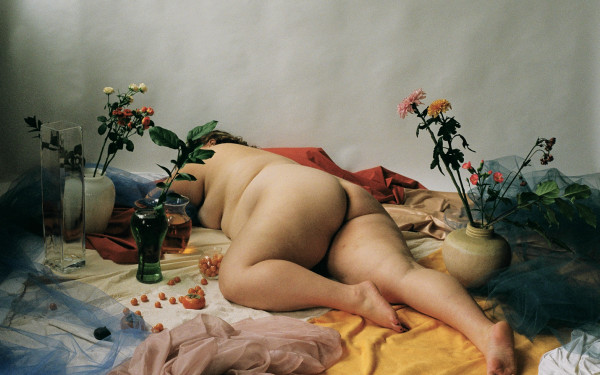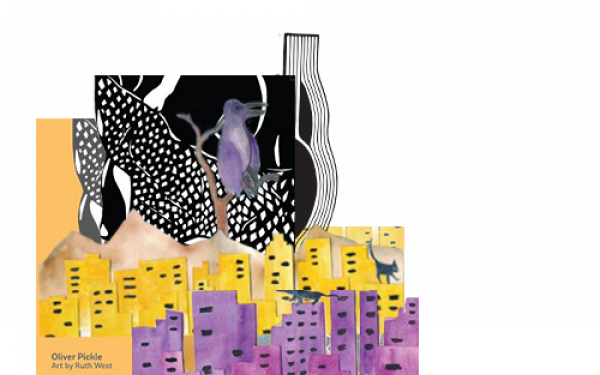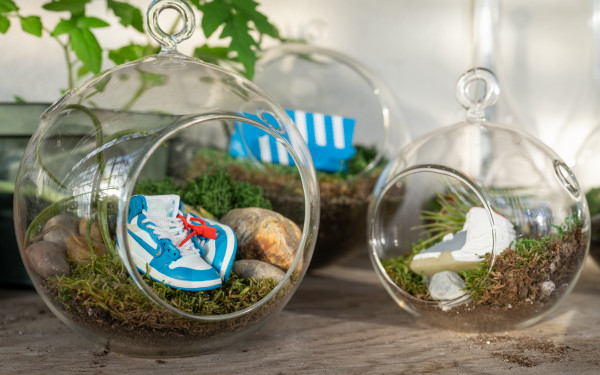Remembering Chile, now and forever
Colectiva Crear Poder Popular commemorates the 50th anniversary of Chile’s coup d’état through traditional textile art
Carolina Echeverria has a tapestry decorated with more than 1,200 dolls in her studio. Chilean music plays, as people stitch clothing and accessories for the figures that will eventually be added to the piece.
The tapestry called No Me Olviden or “Forget me not” in Spanish, is a co-creation between artists and participants in Chile and Quebec. The project will commemorate the 50th anniversary of Chile’s coup d'etat.
The textile artistic collective Crear Poder Popular started the project in 2023 in partnership with the museologist Adrian Silva Pino from the Universidad Austral de Chile. Poder popular refers to a form of political power of working-class people in Chile. The collective invites participants to create small fabric dolls using “arpillera,” a traditional art form from Chile characterized by brightly coloured patchwork pictures which are made predominantly by groups of women.
“We wanted to get away from all the images that people have been using for 50 years,” explained Carolina Echeverria, one of the co-founders of the collective. “Of La Moneda [presidential palace] burning, the people's faces in black and white, the horror, the drama, the terrible. Instead, we decided to choose the concept that [democratically elected socialist President] Allende led people in Chile to such an amazing moment of transitioning and to a more just society in a peaceful way.”
Every Tuesday, the collective hosts a doll-making workshop. The goal is to create 3200 dolls, one for each person on the Rettig Report, also known as the Report of the National Commission on Truth and Reconciliation. The report was published in 1991 and documented human rights violations that occurred during the military dictatorship of General Augusto Pinochet in Chile between September 11, 1973, and March 11, 1990.
The Rettig Report documented 3,438 cases of torture, disappearances, kidnappings, and executions, committed by the military regime and provided recommendations for reparations and justice for the victims and their families. This report has played a crucial role in Chile's process of reckoning with its authoritarian past and has been instrumental in ongoing efforts for truth, justice, and reconciliation in the country.
“You feel like you're really getting in touch with these people. We're having a communion with them,” said Teresa Alejandra Peñafiel, a member of the collective. “One family knew that we were representing their loved one and it was so emotional for them. Even if it's a small figure, it is important for people to know that we still remember those who were affected.”
When participants arrive at Echeviera’s studio, they can choose from a list of stories from the report. The collective encourages visitors to choose a story that touches them. Participants then make the doll as well as clothing and accessories to match their chosen story. As the workshop continues, everyone takes turns reading the stories out loud, concluding with “Presente, ahora y siempre” — Present, now and forever.
“A sense of community is present,” said Denise Olivares, a member of the collective and Montreal-based artist. “So even people who haven't lived through it can feel a sense of empathy.”
According to Echeverria, every aspect of the project is collaborative. She explained that she believes that collaborative art pieces are the strongest thing you can do to keep memory alive.
“The more people are working on this piece, the more the memory will stay alive,” she said. “People will remember. You will remember this conversation. [Participants] will remember making these figures. They will remember how the stories touched them. That's what we're trying to achieve.”
The collective is also working on digitizing the list of names and translating the stories in English, Spanish, and French. Writers are rewriting the stories in first person with the goal of making each story unique. Peñafiel explained that the collective wants the names in the report to represent more than a statistic.
“In Chile, there's a lot of people that want to forget. They say it’s over,” said Peñafiel. “But it's impossible for people that have been through this to just forget. You can put it aside for a while to continue your life but you can never forget. And you should never forget because remembering is what's going to permit us to transform all this horror into something better.”
If you would like to participate in the creation of No Me Olviden, Colectiva Crear Poder Popular hosts workshops every Tuesday from 6 p.m. to 8 p.m.
This article originally appeared in Volume 44, Issue 10, published February 13, 2024.






